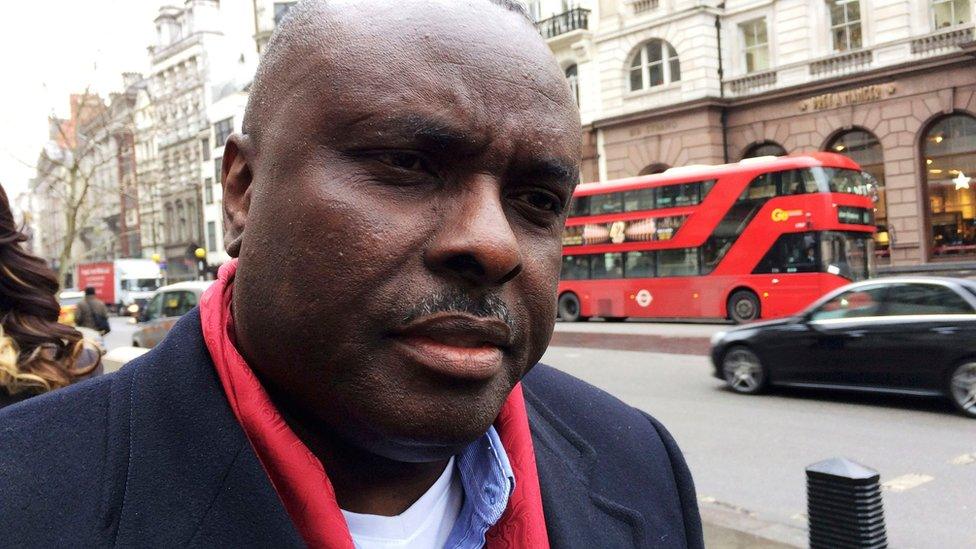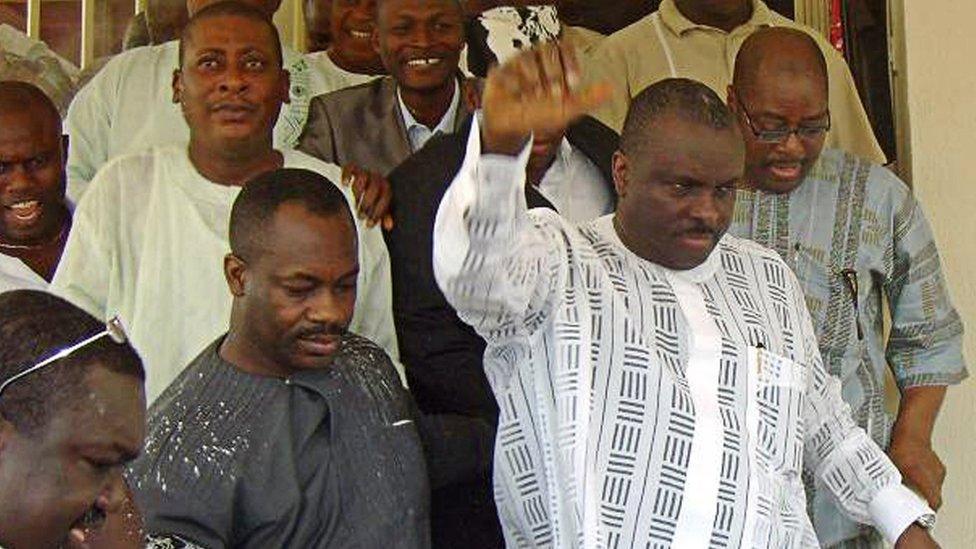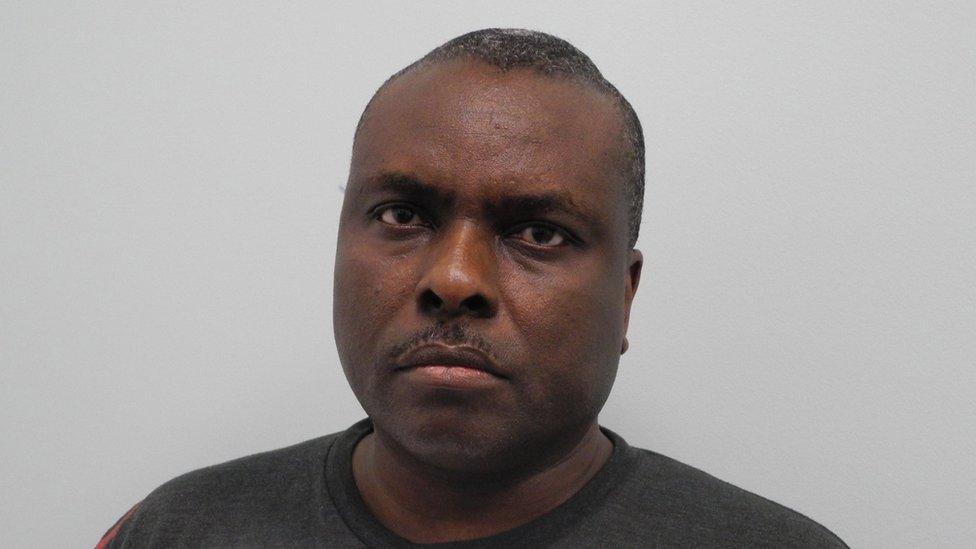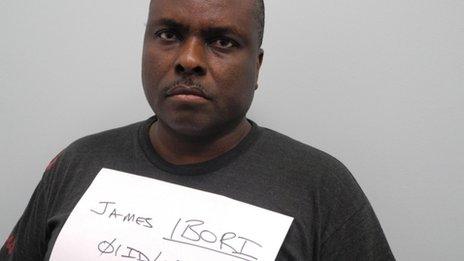James Ibori: Nigerian ex-governor challenges UK conviction
- Published

James Ibori was released from a UK prison in December after serving four years of a 13-year sentence
A Nigerian politician is appealing against his British conviction for corruption, claiming the Metropolitan Police investigation was itself mired in corruption.
James Ibori was released in December after four years in a British prison, but prosecutors have since admitted they have documents suggesting police officers involved in the case took bribes.
The UK government spent years and millions getting Ibori out of Nigeria and into a British court in one of the most expensive and complex police investigations undertaken.
Ministers wanted to prove their determination to tackle corruption in Africa.
'Unfairly treated'
Ibori, a former London DIY store cashier, was jailed for fraud totalling nearly £50m in April 2012.
But now the tables have been turned with Ibori claiming the British authorities were themselves corrupt.
"I have been unfairly treated, that's all I can say," Mr Ibori told the BBC, confirming that he plans to appeal against his conviction for money laundering.
"Yes, I am, of course. I have made that decision personally and I have instructed my solicitors."

Ibori was extradited from Nigeria to London in 2010
Ibori was believed to have laundered large sums in the UK, just part of hundreds of millions of dollars it was claimed he had embezzled from the Nigerian people.
On a state salary of just £4,000 a year he had bought a fleet of luxury cars and expensive properties. He was also looking to buy a private jet.
In 2005 the Department for International Development funded a special police unit inside Scotland Yard to go after corrupt African politicians.
Its prime target was Ibori. Its aim: to get him into a British court and convict him for corruption.
Police bribery claims
Having been extradited to London in 2010, Ibori was convicted and sentenced to 13 years for money laundering two years later.
But since he was jailed, documents have emerged suggesting that at least one officer involved in the Ibori investigation had taken thousands of pounds in bribes.
Last year, after repeatedly telling judges there was no evidence of police corruption, the Crown Prosecution Service (CPS) admitted they had found substantial material that supported the allegations.
Last summer, defence lawyers learned more about an undercover Scotland Yard investigation called Operation Limonium.
"There exists intelligence that supports the assertion that [a police officer] received payment in return for information in respect of the Ibori case," the CPS admitted.
The officer in question has always denied taking bribes and internal police investigations have previously exonerated him.
Details of how Scotland Yard tapped phones and conducted covert surveillance on a number of officers in the unit investigating Ibori emerged for the first time.

Ibori bought expensive properties and cars, including this Bentley, on a salary of £4,000 a year
Other documents alleging officers had taken bribes were sent to the authorities anonymously in 2011 by a lawyer convicted as part of the Ibori case.
Former solicitor Bhadresh Gohil says he was trying to alert them to the police corruption.
"I brought this case to the attention of the Met police, the commissioner of the Met police Sir Bernard Hogan-Howe, I brought it to the attention of Alison Saunders, the head of the CPS. I also drew it to the attention of the then Home Secretary Theresa May," Mr Gohil says.
"Unfortunately, no-one did anything about this."
What they did do was attempt to prosecute Mr Gohil for perverting the course of justice by faking the documents. With the CPS release of the new documents, that case collapsed.
The British authorities managed to get their man before a judge in 2012, but now James Ibori is willingly returning to the courts looking to put the reputation of the UK's criminal justice system on trial.
The irony will not be lost on government ministers.
- Published21 December 2016

- Published22 July 2016
- Published17 April 2012
